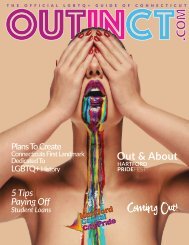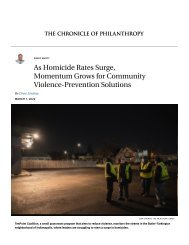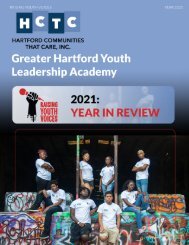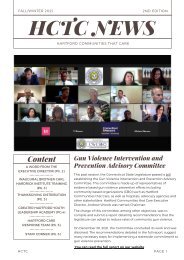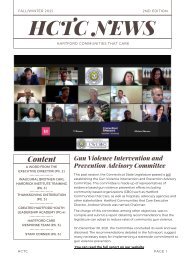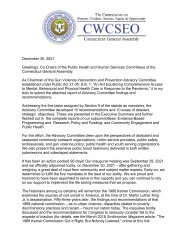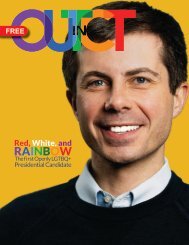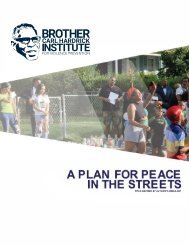OUTINCT2019
You also want an ePaper? Increase the reach of your titles
YUMPU automatically turns print PDFs into web optimized ePapers that Google loves.
LGBTQ+<br />
& Aging<br />
Many people have either used or been<br />
told the figure of speech “you can’t<br />
put the toothpaste back in the tube”<br />
to illustrate the difficulty of going back<br />
once something has been done.<br />
While it may seem like a stretch of the analogy,<br />
try to imagine living a life in which you felt open and<br />
comfortable with being who you are with your family,<br />
partner, friends and others, only to feel a need to put<br />
that life back into the proverbial “closet” as you age.<br />
That is the necessity many LGBTQ+ elders in<br />
the United States are being forced to confront. The<br />
generation of pioneers who created and carried the<br />
flag in a charge to gain rights, eradicate discrimination<br />
and change laws, now often choose to hide<br />
their sexuality out of fear for their safety or quality<br />
of life.<br />
According to a Gallup poll, the percentage<br />
of American adults born before 1964 who identify<br />
as lesbian, gay, bisexual or transgender has<br />
declined since 2012, when Gallup began tracking<br />
the data. Despite this trend, a record 4.5<br />
percent of American adults overall identified<br />
as LGBT in 2017, up from 3.5 percent in<br />
2012. The growth is being driven by millennials,<br />
whose self-reporting jumped from 5.2<br />
percent in 2012 to 8.1 percent in 2017.<br />
While the growth points to a brighter future,<br />
the six-year trend shines a spotlight on<br />
a troubling present. The median age of the<br />
nation is rising, increasing from 35.3 years in<br />
2000 to 37.9 in 2016, according to the U.S.<br />
Census Bureau. Connecticut, with a median<br />
age of 40.3, is the seventh oldest state in<br />
the nation and aging. The number of res-<br />
idents over 60 in the state is projected to hit more<br />
than one in four by 2030. The estimated number of<br />
older LGBTQ+ residents in Connecticut is 24,000<br />
and, like the rest of the population, that number is<br />
growing.<br />
While AARP is a nonprofit, nonpartisan organization<br />
for people 50-plus, we are also on the frontlines<br />
advocating on issues that impact residents of all ages.<br />
Our membership of nearly 38 million nationwide and<br />
over 600,000 here in Connecticut represent every<br />
walk of life and reflect diverse populations.<br />
We recognize the only way to be successful in our<br />
efforts to serve and advocate for the residents is to<br />
ensure that the views and interests of all segments of<br />
the population – across race and ethnicity, gender,<br />
physical ability, sexual orientation, and gender identity<br />
– are reflected and included.<br />
In a multifaceted approach, AARP Connecticut<br />
teams up with diverse organizations around the state,<br />
including LGBTQ+, to give everyone a voice and<br />
provide information that is relevant to them. As part<br />
of this, we provide information and resources on important<br />
topics; advocacy on state and federal issues;<br />
quality volunteer opportunities; and special access to<br />
local AARP events, programs and services.<br />
Statistics that make people pause, gasp and<br />
speak-up for change are easily found on the internet,<br />
but more than reading words, it’s seeing the people<br />
being impacted, hearing their stories and feeling<br />
their heartbreak that often leads to the foundation of<br />
a movement and sustained motivation.<br />
The award-winning documentary Gen Silent is<br />
one tool that can do that and AARP Connecticut is<br />
showcasing the 2010 film to as many people as possible<br />
at locations across the state.<br />
LGBTQ+ GUIDE OF CT | 31




